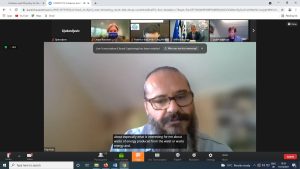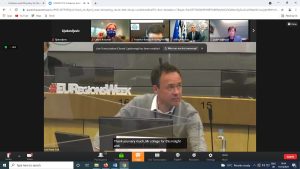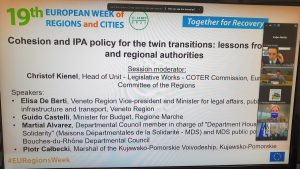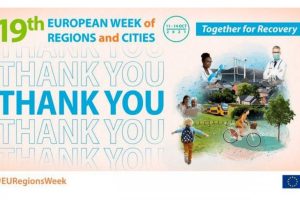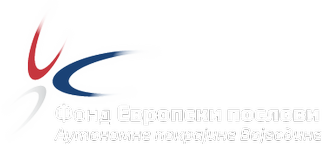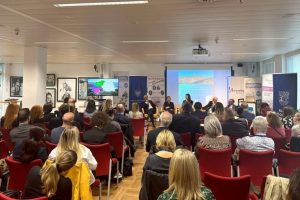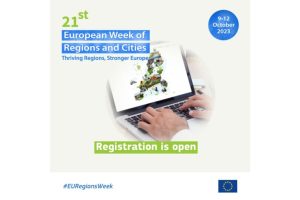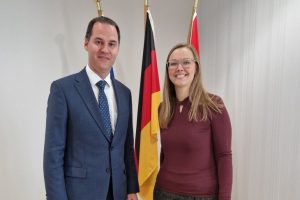The 19th week of Regions and Cities in Brussels has been concluded

The 19th European Week of Regions and Cities was held in Brussels from 11th to 14th of October. Due to the global pandemic, almost all of the activities were held in digital format, with the exception of few events, which were held with the physical presence of a very limited number of people. The organizers emphasized that a record was set in the number of participants, which was over 17,000 at a little more than 300 different events.
This year, AP Vojvodina also took an active part in the largest manifestation, which brings together regions and cities from all over the Europe, where participants have the opportunity to exchange various experiences and practices and discuss topics related to the local and regional level of government.
A workshop entitled “Cohesion and IPA Policy for the twin transition: lessons from Local and Regional Authorities” was held on 13th of October from 9:30am to 11:00 am. AP Vojvodina presented a project called “Exploitation of Diferent Energy Sources for Green Energy Production – XDEGREE” through a short video, and prof. Dr. Filip Kulić, who was also the project leader, was directly involved and answered the questions of interested participants. The effect of cross-border cooperation between partners from Serbia and Croatia stands out as a particularly important segment of the project, and based on the experience of the public water supply company in Vinkovci, a solar power plant was built in Sombor, while a biogas plant in Vinkovci was built on the basis of the project from Sombor. The project lasted for two years, and the total budget amounted to almost 1.7 million euros.
The event was moderated by the representative of the Commission for Cohesion and Territorial Policy of the European Committee of the Regions, Christoph Kienel. During the workshop, several other very interesting examples of the use of cohesion funds for the development of local environments were presented, with an emphasis on green and digital transition. In that sense, the partners from Northern Ireland presented the Transport Terminal North – West, which was built with EU funds and which encourages the development of the economy and tourism in this part of Northern Ireland. This project has the potential to transform the way of traveling within this Irish region, encouraging transport habits towards the so-called “Green recovery”. Ms. Elisa De Berti, Regional Minister for Legal Affairs, Public Works, Infrastructure and Transport, spoke on behalf of the Italian Veneto region. In her presentation, Ms. De Berti presented a regional transport plan that aims to modernize public transport in the direction of electric vehicles as well as improve mobility between urban and rural areas using a variety of digital solutions. The Regional Minister of the Italian region of Marche, Mr. Guido Castelli, especially emphasized the importance of the European Green Agreement and the NextGenerationEU program as key aspects for a successful green and digital transition. Representatives of the Greek Union of Attica municipalities shared their experiences in using EU funds to rebuild infrastructure built for the Olympics, which will be rebuilt using environmentally friendly materials as well as creating additional green spaces, pedestrian zones and bike paths.
The second part of the workshop began with a presentation by the representatives of the French region Bouches-du-Rhone, Mr. Alvarez, who pointed out that during the green and digital transition, special attention must be paid to the protection of the most vulnerable in all aspects of life, especially in exercising various rights and benefits. On behalf of the Polish Kuyavian-Maritime Region, Piotr Calbecki spoke about the experiences of this region in terms of developing various tools to improve the work of local and regional administration. The Spanish region of Castilla-La Mancha briefly presented three different projects: the first to improve opportunities for people with disabilities, the second to digitize medical radiographs in local hospitals, and the third to which is aimed at protecting forest areas from fire.
This workshop was followed in digital format by over 120 participants, who had the opportunity to participate in the survey through appropriate platforms, as well as to ask questions, with simultaneous translation into English, French, Italian and Spanish.
